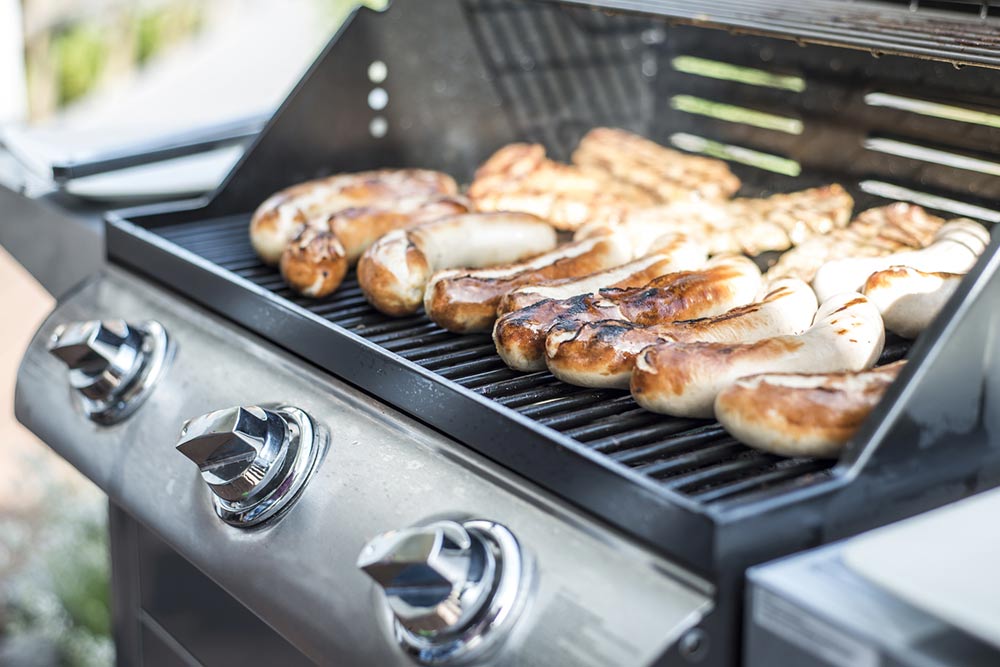9 most common grilling mistakes to avoid

Spring is the best time to take the grill out and invite friends over. Some people enjoy cooking up a storm on the grill in the company of their loved ones. Grills are a great way of putting hotdogs, burgers, as well as skewers on the brunch menu. However, people tend to make some mistakes when handling their grilling machines. These mistakes can impact the grill and the quality of the food being cooked.
Not cooking the right foods
The grill might seem like an all-rounder, but it cannot cook everything. Some food items should never be grilled. Putting the wrong foods on the grill can quickly turn into a fire or health hazard. Thinking of cooking fish on the flame? Chances are, if the fish is delicate, it will start flaking and create a huge mess. Bacon is another food that should not be cooked on a grill. The bacon grease will splatter everywhere and catch fire easily. Furthermore, since pork chops have low fat content, they can dry out completely when cooked on the grill.
Not preheating the grill
Just like the oven, the grill is not ready to cook the minute one switches it on. Turning on the grill does not automatically mean it has reached the right cooking temperature. Individuals must give the grill cavity and grate some time to get hot. Cooking on a grill that has not reached the right temperature might lead to uneven results. Instead of rushing the process, one must let the grill preheat and then start cooking.
Not cleaning the grill
A common mistake many users make is not cleaning the grill. Sure, some appliances can be a little tricky to clean, but that does not mean one should avoid the task. Ignoring cleaning can result in the accumulation of grease, dirt, and grime on the grill and impact the quality and taste of the food being cooked on it. Moreover, when things like grease and dirt mix with the food, it might lead to health concerns. Cooking on a grill that has excess grease can also lead to a fire hazard.
Using direct heat
Cooking on the barbeque grill is an art that needs some learning and training. One of the things to remember is to not always cook on direct heat. Not everything cooked on a barbeque turns out well with direct heat. Foods like hamburgers and hotdogs cook well with this method, but not when the dry rub on the meat contains sugar. Such meat, when cooked over direct heat, might cause the grease to drip onto the coals. When this happens, it is important to move the food to the side.
Not using air vents
Ignoring air vents is a mistake when using fire grills. Air vents control airflow and help stop a fire in such grills. So, if using a fire grill as a newbie, exercise caution. If in doubt, make sure the vents are either turned off or partially open. When using a fire grill, it is also important to take care of where the meat or other food is placed. Grease dripping right on top of the hot coals can be a perfect recipe for a grease fire mishap.
Frequently opening the lid
How does an oven work? Does someone keep opening the door to see where the cooking process has reached? No, right? Apply the same idea to the grill. The more one opens the lid, the longer the task will take to finish, and the guests at the dinner party might get impatient. People must remember that if they keep looking, they aren’t cooking. If someone knows they will be opening the lid over and over again, they should calculate a longer cooking time.
Gathering too close to the heat
Cooking on the grill is more about spending time with the family than anything else. However, it is always advisable not to stay close to the heat for extended periods. People must ensure they host activities and enjoy conversations with the family away from the grill. Doing so will make barbeque luncheons fun, relaxing, and, more importantly, safer for everyone.
Not using thermometers
Not using a thermometer is one of the common mistakes people make when grilling. Instead of checking the temperature with the thermometer, they tend to go by how hot the grills feel. Touching the grill to check its temperature is not the same as using a tool specially designed to do the job. So, let the thermometer decide whether the grill is ready to cook or not. It will help maintain the right temperature and keep the food from being over or undercooked.
Not using tongs
Some prefer poking and piercing their meat every time it needs to be moved around or turned over on the grill. One must note that the more the meat is poked and prodded, the drier it will become as it cooks. This process can drain valuable juices from the meat and compromise its taste and texture. So, swap these prongs in favor of turners or tongs. But even with the prongs, try not to turn the meat repeatedly.



